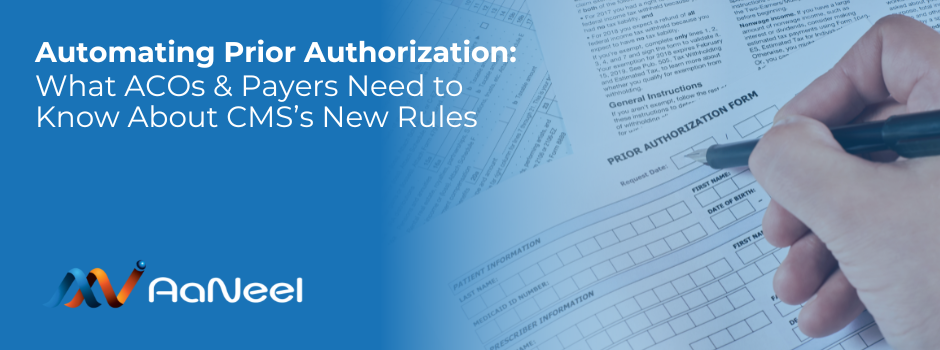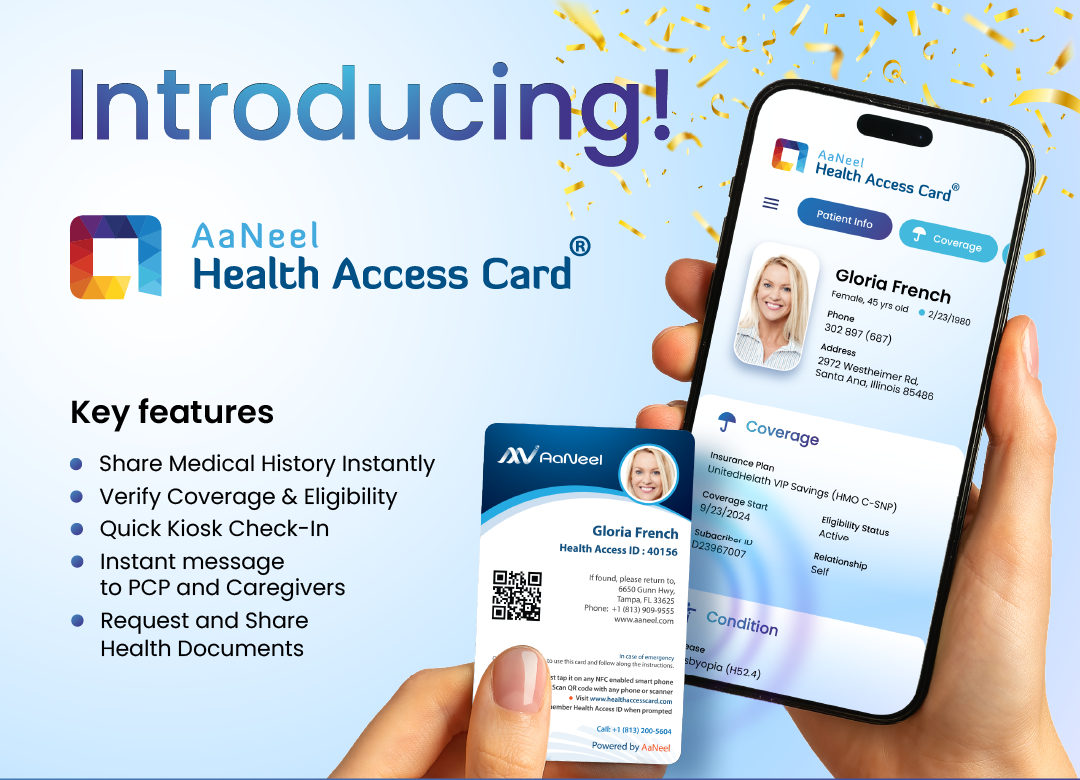Prior Authorization

Automating Prior Authorization: What ACOs & Payers Need to Know About CMS’s New Rules
In healthcare, few processes are as universally frustrating and as ripe for transformation as prior authorization.
The good news? That transformation is finally underway. In 2024, the Centers for Medicare & Medicaid Services (CMS) finalized a landmark rule designed to streamline and standardize prior authorization through modern interoperability. It’s a move that promises faster decisions, lower costs, and less administrative drag for everyone involved.
The rule goes into effect on January 1, 2026, and it’s about more than compliance. It’s about connection.
Understanding the CMS Prior Authorization API Rule
The CMS Interoperability and Prior Authorization Final Rule (CMS-0057-F) applies to Medicare Advantage plans, Medicaid and CHIP FFS programs, Medicaid managed care, and qualified health plan issuers on the Federally Facilitated Exchanges.
Its goal is to make prior authorization faster, more transparent, and more predictable through electronic exchange.
Key requirements include:
- Electronic Prior Authorization via API
Payers must build and maintain FHIR-based APIs that allow providers to submit, track, and receive authorization decisions electronically. No more faxes, portals, or endless hold times.
- Real-Time Decision Timelines
CMS now requires that payers respond to standard prior authorization requests within 72 hours for urgent cases and 7 calendar days for non-urgent ones.
- Status Updates and Data Sharing
Payers must provide detailed status updates and clear reason codes for denials via APIs, ensuring visibility for providers and care managers across systems.
- Public Reporting
Payers will be required to publish metrics on prior authorization volumes, approval rates, and turnaround times to improve transparency and accountability.
These changes are about creating a continuous digital exchange: a shared language that connects payers, providers, and patients in real time.
FHIR-Based APIs: The Backbone of Modern Interoperability
FHIR, or Fast Healthcare Interoperability Resources, is the new common language of healthcare data.
FHIR APIs enable systems to talk to each other in real time, securely and consistently. For prior authorization, that means:
• No manual data re-entry
• No lost requests or incomplete records
• No ambiguity around status or decision timelines
Instead, data moves seamlessly from the point of care to the payer and back again in seconds.
It’s not just about speed. It’s about clarity, accuracy, and trust in a process that has long eroded all three.
Why This Matters for Providers and ACOs
For physicians and care teams, automation is liberation.
CMS estimates that the new standards could save $15 billion over ten years by reducing administrative burden and accelerating care delivery.
For ACOs and risk-bearing organizations, that translates to:
• Fewer care delays that jeopardize outcomes and shared savings
• Less manual overhead for staff
• Improved documentation and audit readiness
• Faster, more predictable cash flow for services rendered
Most importantly, it gets providers back to doing what they do best: caring for patients.
AaNeel’s Approach: Interoperability in Action
At AaNeel, we’ve been building for this future from the start.
Our FHIR-forward architecture already supports seamless integration with payer and provider systems, enabling:
• Real-time prior authorization exchange directly within care management workflows
• Automated data pulls from EMRs, claims systems, and payer APIs to populate requests instantly
• Transparent tracking of authorization status and turnaround times
• Unified data visibility across clinical, utilization, and quality management modules
For AaNeel customers, that means compliance isn’t a scramble. It’s a natural extension of how their technology already works.
The Future Is Real-Time
The era of waiting on prior authorization is coming to an end. CMS has set the standard, and now it’s time for organizations to act.
By embracing interoperability and automation today, ACOs and payers can prepare for compliance, reduce costs, and unlock the kind of operational agility that defines modern value-based care.
Ready to See It in Action?
AaNeel’s FHIR-forward platform helps connect clinical and operational data across every function—from prior authorization and utilization management to quality reporting and patient engagement.
If you’re ready to simplify compliance and accelerate care, let’s talk. Discover how AaNeel can help your organization move from manual to meaningful.

